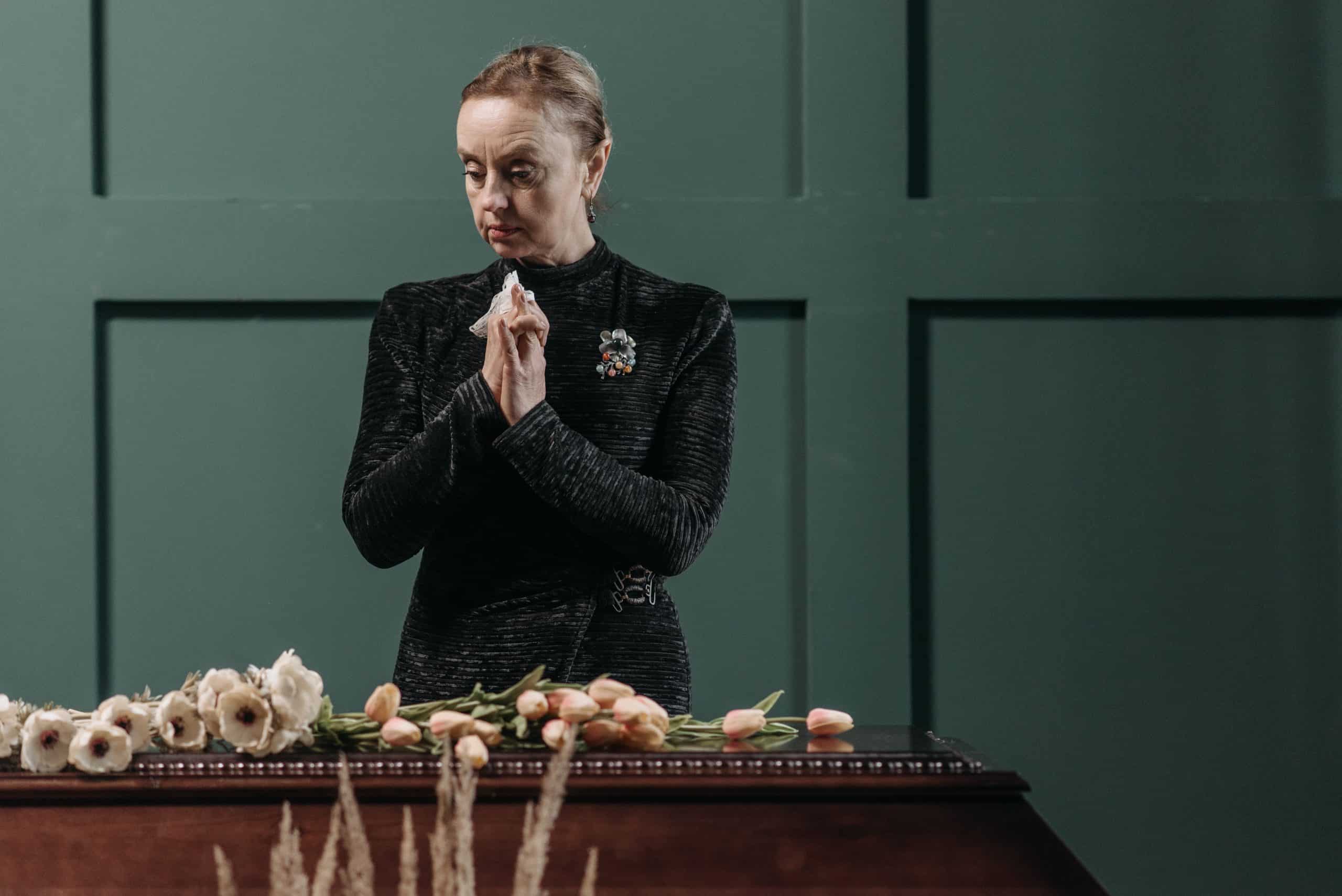7 Powerful Lessons We Can Learn From The Widow’s Mite

Ever wondered about the story of The Widow’s Mite? There are many generous people in the world and throughout history. Maybe you are one of them. They have received thank you letters or places of recognition for the exorbitant amount of money given to organizations, institutions, or causes.
But one of the most famous givers of all time is found within the pages of the Bible and was personally recognized by the Messiah, Jesus Christ. It was a nameless widow who had given two copper coins worth a fraction of a penny.
Although by human standards it was a pitiful amount, in Jesus’ eyes it was an act of such grandiose generosity that needed to be acknowledged as a teaching moment to his disciples. The widow’s mite is a short but powerful story that reveals the nature of God’s heart when it comes to giving.
This post may contain affiliate links. You can read my full affiliate disclosure here.
What Does the Bible Say About the Widow’s Mite?
The story of the Widow’s Mite or Widow’s Offering is found in two of the four synoptic Gospels: Mark 12:41-44 and Luke 21:1-4. The story takes place at the Herodian Temple, specifically in the court where the tithes and offerings were collected.
After a long day of teaching and answering questions from the religious leaders, Jesus went to sit in the Temple court across from where the offerings were collected. But he did not just sit to rest, he sat and watched people as they were dropping money into any one of the thirteen receptacles provided for giving.
Jesus saw the rich dropping their donations, but when he saw a widow drop in two small coins, he called his disciples over. In this teaching moment, he told his disciples that the poor widow had given more than everyone else. He explained that the others had given a small amount out of the surplus they had, but she gave everything she had to live on.
What is the Meaning of the Widow’s Mite?
To get a clue as to the meaning of the Widow’s Mite, it is helpful to not only look at the story itself but also at the surrounding scriptures before and after the account. It is interesting to see that before Jesus points out the widow, he was teaching the people in the Temple to beware of the hypocritical teachers of religious law who do things only to be seen by people. He mentions how these false teachers devour widow’s houses and so, in a way, was preparing the listener for the character of the widow.
What follows the Widow’s offering is just as thought-provoking. In Mark 13:1, after Jesus leaves the Temple, one of his disciples says to him to look at the “magnificent buildings” and the “impressive stones.” Jesus is not dazzled by the structures, but he instead replies that the buildings will one day be “completely demolished.” The disciple was merely looking at the outward appearance while Jesus was looking at its future fate.
Combining the story of the Widow’s Mite and the other two mentioned above, we learn that the meaning of this story is to show the difference between the things that we see and the things we cannot. In 2 Corinthians 4:18, it says that the things that are seen are temporary and the things that are unseen are eternal. While people may have looked at the amount of money given by the widow, God looked deeper at the heart behind it. Here are seven lessons we can learn from the Widow’s Mite:
The Widow’s Mite #1: Our giving is not measured by the sum, but by the sacrifice
There is a vast difference between God’s economy and ours. In our world, value is usually measured by how much we have and how much we give. The more we own, the more we are considered to be rich and the more we give, the more we are considered to be generous.
But God does not look at amounts, he looks at the sacrifice. The rich people gave large amounts, but because they already had so much to live on, it would not have affected them as much as the widow who gave whatever left she had to live on.
The amount of sacrifice it took for her to give all that she had was what caught Jesus’ attention. It is not the sum but the sacrifice that matters to God. And the willingness to sacrifice reveals the attitude of the heart.
The Widow’s Mite #1: Sometimes less is more
The widow could have easily dismissed giving her two coins thinking to herself that because it was such a small amount, it would not have made a difference anyway. Even if she were to give thousands of dollars, God does not need our money. In fact, everything is His to begin with.
He does not need our money, our time, or our talents to establish His Kingdom or to build His church. His purpose prevails whether we choose to participate in His plans or not. But the widow gave whatever she had, even though it amounted to about a penny’s worth. Sometimes there will be seasons when you do not feel like you have much to give.
But do not get discouraged at the amount of money, time, or talent you can give back to God no matter how little. Your less may mean more to God and His Kingdom than you will ever realize. More importantly, God desires that you will have faith in Him in your giving.
The Widow’s Mite #3: Outward appearances can be deceiving
In 1 Samuel 16:7, God tells Samuel that men look at the outward appearance, but the Lord looks at the heart. When Jesus told his disciples that the widow gave more than everyone else, it must have left them confused. Simple math confirms that she gave less. But what looked to everyone else as an insignificant amount, was a priceless offering in God’s eyes.
Because we are not all-knowing like God, we are not in a place to judge anyone based on how they look or what they give or withhold. It looked like the rich were giving more, but in actuality, it was the widow who gave the most. Even after leaving the Temple, one of Jesus’ disciples was in awe of the outward appearance of the buildings they were walking past.
He was merely looking at temporary things because those buildings, as beautiful as they had looked on the outside, would one day be destroyed. If we only look at the things we are able to see, we will be greatly deceived. We need to have our spiritual eyes opened to be able to view things the way God sees them.
The Widow’s Mite #4: Radical faith results in radical action
The way you live out your faith is directly correlated with what you believe about God. If you have faith in a small God, then you will do small things. If you have faith in a big God, then you will do big things for Him. When the twelve spies were sent to scope out the Promised Land, the ones who believed in a little God returned to their people with fear and discouragement.
But Joshua and Caleb believed in a big God who could give them victory by destroying the giants in the land. Because of this, they encouraged the Israelites to move forward with courage. Similarly, the widow had faith in a big God and so she gave everything she had to live on believing that God would continue providing for her needs. Her radical faith produced a radical action that did not go unnoticed by Heaven.
The Widow’s Mite #5: It is not the act of giving, but the heart behind it
Godliness is something that can be emulated. The religious leaders did everything to be seen by the people. They knew the scriptures, honored the Sabbath, and prayed long prayers. But their outward acts of service were preventing them from an inward transformation.
Maybe the rich who were putting in large amounts of money that day felt like they were honoring God, but as the religious leaders, their hearts were far from Him. More than acts of sacrifice, God desires mercy, obedience, righteousness, justice, and love for Him and others. For Jesus to point out the widow amongst everyone else must have meant more than her act of giving, but the heart behind it.
She must have given it with such a humble disposition that Jesus chose to exalt her in front of his disciples. The Widow’s Mite shows us that more important than the act of giving is the heart from which it is given.
The Widow’s Mite #6: Everyone is equal in God’s eyes
Romans 2:11 says that God does not show favoritism and instructs us to do the same in James 2:1. Our human nature gives us the propensity to gravitate towards those who are successful by the world’s standards. Those who are wealthy, attractive, well-educated, have high social standing, or are talented are the ones who usually have the most followers, friends, and fame.
Most people would have overlooked the widow because of her lack: lack of a husband, lack of finances, lack of a favorable future. But Jesus looked at everyone. He looked at the rich as well as the poor. He looked at the religious elite as well as the uneducated common people. He looks at everyone as equals and sees each person as a creation of his Father.
Because we are all equal in God’s eyes, not only are we instructed to treat everyone fairly but we are also encouraged that no matter what our past or present looks like, we are all qualified to have a beautiful future in Him.
The Widow’s Mite #7: God has a special heart for society’s vulnerable
In the Bible, we see that God has special instructions on how to treat widows, orphans, the poor, and foreigners. He tells us to take care of them, to give to those in need, and treat them fairly. On the contrary, Jesus pointed out that the religious leaders were so corrupt that they devoured widow’s houses.
When they were supposed to be taking care of the widows, instead they were taking advantage of them. Widows were one of the most vulnerable in Jewish society at that time. So for Jesus to point out that one of the most vulnerable has done one of the noblest things speaks a lot to us about how he cares for those who have been overlooked, rejected or taken advantage of by society.
God’s heart should become ours. As Christians, we need to be taking care of and uplifting society’s most unprotected and defenseless.
Lessons We Can Learn from the Widow’s Offering
There are many important lessons that we can learn from the Widow’s Offering. If you take a look at the religious leaders, the rich, and the widow in this story, which of these three does your life most currently reflect? Are you doing all the religious outward things correctly – going to church, reading the Bible, praying, tithing – but your heart is hardened to obey God’s voice in every part of your life?
Do you have much but only give what you need to and hold tightly to the rest? Or do you recognize that everything belongs to God and you are willing to be a living sacrifice because of your faith and love for Him?
We need to be willing to give it all if we have decided to follow Jesus because he gave it all for us. When we fully realize the sacrifice he paid for our sins, our offerings come from a heart of willingness, gratitude, and generosity. Not only do we see this heart in the widow’s offering, but we also see it in another story in Mark from the woman with the alabaster jar.
This woman poured an expensive bottle of perfume worth a year’s wages over Jesus’ head. She was scolded by the disciples that she should have sold the perfume and given the money to the poor. But Jesus commended her saying that she had done a beautiful thing. She had given Jesus her most prized possession in an act of sacrifice and love. Our hearts must be inclined to give God our best, whatever that may look like.
The Widow’s Mite
The Widow’s Mite may not be a very long story, but it is an important one that reveals and reflects God’s heart versus the attitudes of ours. We learn that our giving is not measured by any number amount, but by the amount of sacrifice. We recognize that outward appearance can be deceiving, so sometimes less is more.
We acquire insight into the widow’s heart that she had great faith in a great God that produced a great act. We also see that everyone is equal in God’s eyes and He notices and cares for those who are the most vulnerable in society. The Widow’s Mite inspires us to be all in with whatever God has given us. Although short, this story is an encouragement to those who have little and a challenge to those who have much.
Additional Articles
Lessons We Can Learn From Naomi in The Bible
Lessons We Can Learn From Abigail in The Bible
Lessons We Can Learn From Esther in The Bible
30 Inspiring Bible Verses About Generosity






